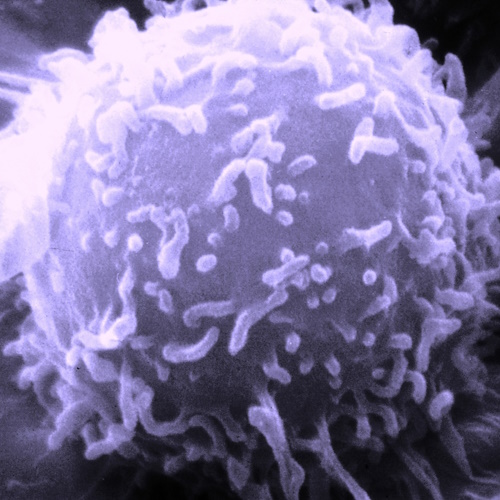The immune system is a marvel of biological engineering. It protects us from harmful pathogens and ensures our well-being. This intricate network of cells, tissues, and molecules constantly adapts to new threats. Understanding how it changes throughout life can help us maintain health and combat diseases more effectively. Advanced technologies like flow cytometry have revolutionized our knowledge, offering deeper insights into immune behavior from birth to old age.
Journey of the Immune System
Early Development
The immune system starts developing in the womb. During pregnancy, the fetus's immune system begins to form, learning to distinguish between the body's own cells and foreign invaders. This process involves the development of hematopoietic stem cells and the establishment of immune organs like the thymus and spleen.
Childhood and Adolescence
In early life, the immune system is still maturing. It learns to recognize and respond to various pathogens through exposure to the environment and vaccinations. This period is crucial for developing immunological memory, which provides long-term protection against diseases.
Adulthood
By adulthood, the immune system is at its peak. It has a vast repertoire of immune cells ready to combat infections. Continuous exposure to pathogens and environmental factors further strengthens and refines immune responses.
Ageing and the Immune System
As we age, our immune system undergoes significant changes, a process known as immunosenescence. This leads to a gradual decline in immune function, making us more susceptible to infections and diseases.
With age, the production of naive T-cells decreases, while the number of memory T-cells increases. This shift impacts the immune system's ability to respond to new antigens. Additionally, aged T-cells show reduced proliferation and impaired cytokine production.
Immunosenescence results in increased vulnerability to infections, reduced vaccine efficacy, and a higher risk of chronic diseases such as cancer and cardiovascular conditions.
Technological Advances in Immune System Research
Role of Flow Cytometry
Flow cytometry is a powerful tool that allows researchers to analyze individual cells based on their size, complexity, and protein expression. This technique has transformed immunology by providing detailed insights into immune cell populations and their functions.
Key Contributions
Flow cytometry has been instrumental in studying diseases like HIV and cancer. It enables the identification of specific immune cell subsets, helping to monitor disease progression and the effectiveness of treatments.
Extracellular Vesicles: New Frontiers in Immunology
Extracellular vesicles (EVs) are tiny membrane-bound particles released by cells. They carry proteins, nucleic acids, and lipids, facilitating communication between cells. EVs play a crucial role in regulating immune responses.
In ageing, the production and composition of EVs change, affecting their ability to modulate immune functions. Research suggests that EVs from aged cells may contribute to immune decline. However, targeting EVs offers potential therapeutic strategies to rejuvenate the immune system.
Emerging Research Directions
The field of immunology is rapidly evolving, with new discoveries enhancing our understanding of immune ageing and diseases. Researchers are exploring innovative approaches to boost immune function and combat age-related conditions.
Targeting EVs and using advanced techniques like nano flow cytometry can lead to novel therapies for enhancing immune responses. These strategies hold promise for improving healthspan and reducing the burden of age-related diseases.
Moreover, technological advancements, such as flow cytometry and EV research, are paving the way for breakthroughs in immunology. These tools provide deeper insights into immune mechanisms and offer new avenues for therapeutic interventions.
Conclusion
The immune system's journey from early development to old age is a testament to its adaptability and complexity. Technological advancements, particularly in flow cytometry, have provided profound insights into immune behavior and ageing.
The discovery of extracellular vesicles adds another layer of understanding, offering new possibilities for therapeutic interventions.
As we deepen our knowledge of the immune system, we pave the way for strategies that can enhance health and longevity, ensuring a better quality of life for all.
The study is published in the journal Biomedicines. It was led by Anis Larbi from Beckman Coulter Life Sciences in collaboration with Université de Sherbrooke.





